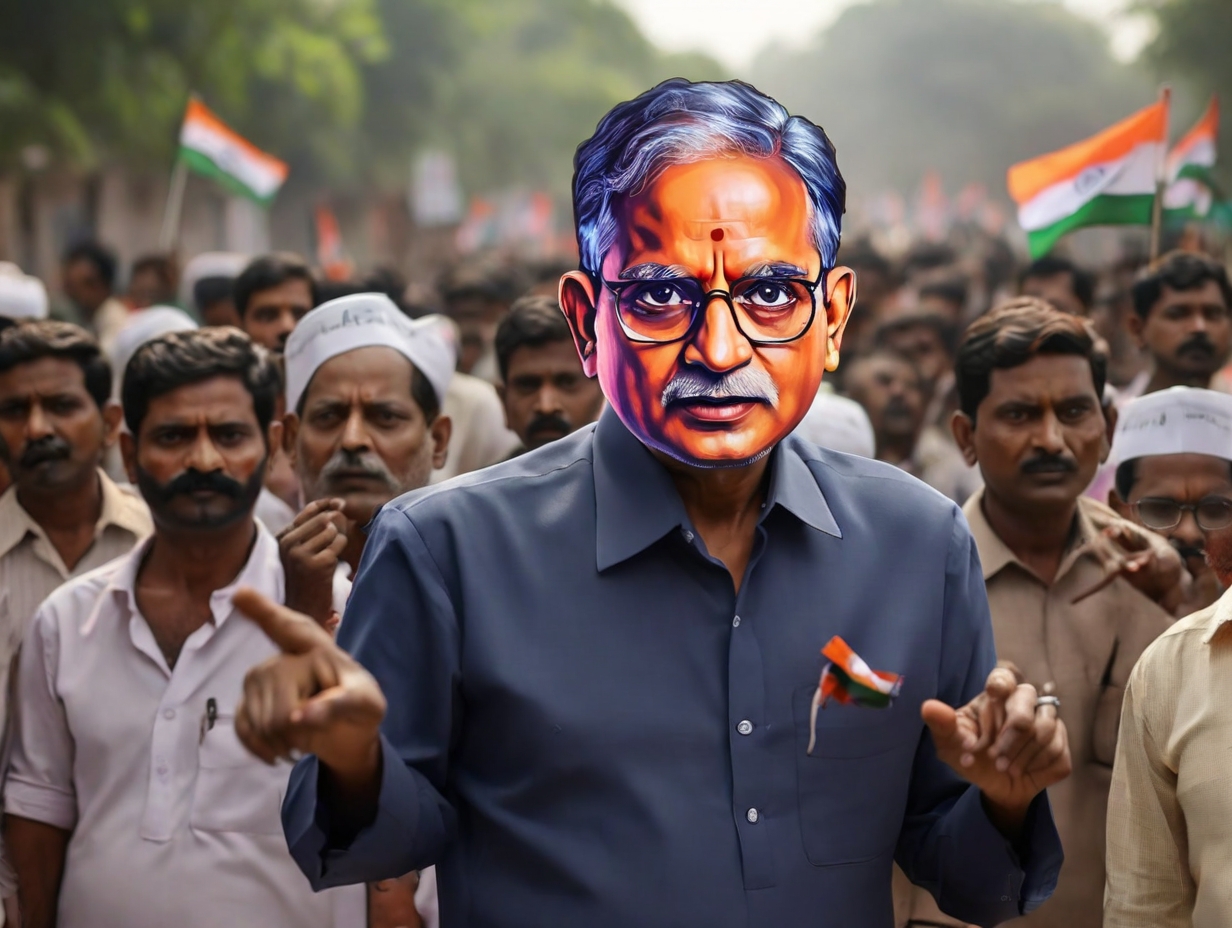The Indian National Congress (INC) and the Bharatiya Janata Party (BJP) have ventured into AI-crafted political content on their official Instagram handles. The deployment of artificial intelligence in creating and disseminating political messages signals a paradigm shift in visual politics, prompting questions about transparency and disclosure.
On February 20, the INC released a satirical video on Instagram, parodying Prime Minister Narendra Modi through a Hindi music album named “Chor” (thief). The video, viewed over 1.5 million times, humorously portrays a business tycoon attempting to steal, with Modi seemingly handing over crucial assets. Though not hyperrealistic, the content uses AI-generated memes, leveraging Modi’s voice and facial features to accentuate criticism of his alleged ties to business magnates.
In response, the BJP, boasting over seven million followers on Instagram, uploaded a one-minute clip showcasing Modi’s achievements over the past nine years. What sets this apart is using an AI-generated voice singing a patriotic Hindi song, emphasizing Modi’s contributions to farmers and Indian scientists. The audio, confirmed as AI-generated by forensic experts, marked a significant departure for political parties in India.
AI wars challenge platform policies
A review by Al Jazeera revealed at least three instances of AI-created or altered content on the official Instagram handles of both major political parties since February 20. The content, including clips cross-posted on YouTube and Facebook, raises concerns about the boundaries of platform policies on deceptive political content. Meta’s current rules mandate advertisers to disclose the use of AI in political advertisements, but this provision doesn’t extend to political pages and accounts.
While Meta did not respond to queries on AI-labelling policies, the Oversight Board urged the company to expand its manipulated media policy to cover fake audio and label misleading content. On the other hand, YouTube plans to require creators to disclose the use of AI in realistic altered or synthetic content, as stated in a November 2023 blog post.
Despite displaying evident deepfake discrepancies, the INC’s video received widespread laughter online, highlighting the growing influence of AI-enhanced memes in political communication. Vaibhav Walia, chairman of the INC communications war room for the 2024 election, emphasized the effectiveness of meme-based communication in conveying the party’s message on social media. He noted that The use of AI aligns with the need to create standout content that catches voters’ attention in the age of meme-driven social media trends.
However, the BJP’s suspected AI clips posed a challenge for detection experts, with opinions divided on whether the content was AI-enhanced. The party’s spokesperson, Gaurav Bhatia, remained silent on the matter. The AI-generated recreation of a 1970s Hindi song, confirmed by experts, utilized the retrieval-based voice conversion (RVC) model to synthetically transform a unique voice into that of legendary singer Mahendra Kapoor.
Call for mandatory disclosures in political AI content
As political organizations increasingly leverage AI for content creation, experts advocate mandatory disclosure of AI-edited content on political pages. With AI’s rapid ability to mimic reality, such disclosures become crucial to prevent potential misinformation. However, the Election Commission of India remained silent on guidelines concerning political parties sharing AI-altered content.
Misinformation researcher Tarunima Prabhakar emphasized the necessity of disclosures as AI-generated content gains the ability to mimic reality more convincingly. Political satire using AI, which includes deepfake technology, demands protection to preserve the freedom of speech. The need for clear disclosure becomes even more critical in democratic contexts where regulations should distinguish between satire and disinformation.
As political parties in India embrace AI for content creation, the landscape of political communication undergoes a transformative shift. The ethical implications of using AI in political messaging and the challenges of detection and disclosure necessitate a nuanced approach. As technology evolves, so must regulations and transparency measures to ensure the responsible use of AI in shaping political narratives. The emergence of AI-enhanced political content marks a pivotal moment, demanding a delicate balance between innovation and ethical considerations in the evolving digital era.





